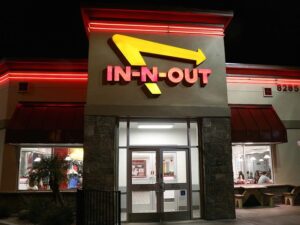(Natural News)
As the Pacific Ocean continues to fill up with container ships, rough weather conditions and human error have led to a rise in accidents at sea involving these vessels.
According to Freight Waves, a record number of containers fell from ships into the ocean last winter during the import surge, and the problem shows no signs of slowing down. In addition, ships are catching fire and causing oil spills on the West Coast.
The Zim Kingston container ship, which was sailing toward Vancouver from China with a full load, dropped 40 containers at the mouth of the Straits of Juan del Fuoco when the ship tilted toward one side while passing through heavy seas last Friday. After losing the boxes, the vessel anchored off of the Port of Victoria in Vancouver Island.
The following day, several containers on the ship caught on fire. According to the Canadian Coast Guard, at least 10 containers were on fire; two of them contained the hazardous mining chemical potassium amylxanthate.
The fire expelled toxic gas, prompting the Canadian Coast Guard to set up an emergency zone around it as 16 crew members were evacuated. The nature of the chemicals on the ship meant that using water to extinguish the fire was not an option. The ship is expected to be out of service for an extended period of time. Lengthy delivery delays are expected for shippers whose boxes were undamaged in the incident.
Experts say that incidents like these are not uncommon, and with cargo ships booked solid, sending in a replacement vessel or shifting the cargo to another ship is out of the question. Each recent mishap has caused a chain effect that contributes to the problem of cargo piling up in the ports.
With a weather condition known as a bomb cyclone headed for the West Coast of North America, heavy winds and rains are expected in the coming days. The marine exchange of Southern California has asked vessels to go to sea voluntarily due to safety concerns off the ports of Long Beach and Los Angeles, where an armada of container ships is lined up.
Oil spill caused by container ship backlog
Earlier this month, 144,000 gallons of oil spilled from a pipeline off of Huntington Beach, California, as an armada of commercial ships were either anchored or drifting there due to port backlogs. The spill sent oil onto beaches in the area and put wildlife in danger.
It is believed that the anchor of one of the dozens of ships in the area dragged the pipeline and caused it to puncture as investigators found that 4,000 feet of the nearly 18-mile pipeline had been laterally displaced by 105 feet, with a 13-inch slit in the pipeline believed to be the source of the release of the oil. The pipeline had reportedly been pulled like a bowstring into a semicircle.
Officials have said that even with the high congestion in the area, the container ship should have had no trouble avoiding the pipeline as they are clearly indicated on nautical maps and ships may only drop anchor in designated areas.
The incident came as the average wait time from anchor to berth at the Port of Los Angeles reached an all-time high of 10.7 days; in the past, ships usually arrived and were able to go straight to a berth.
The unprecedented number of container ships dropping their anchors as they wait to get into their ports is the result of the imbalance being seen in the country’s supply chains, which is compounded by a lack of truck drivers available to haul containers away and a lack of empty containers. The gridlock is also expected to cause a serious shortage of Christmas gifts this year, along with higher prices for consumers on a broad range of goods.
Sources for this article include:






